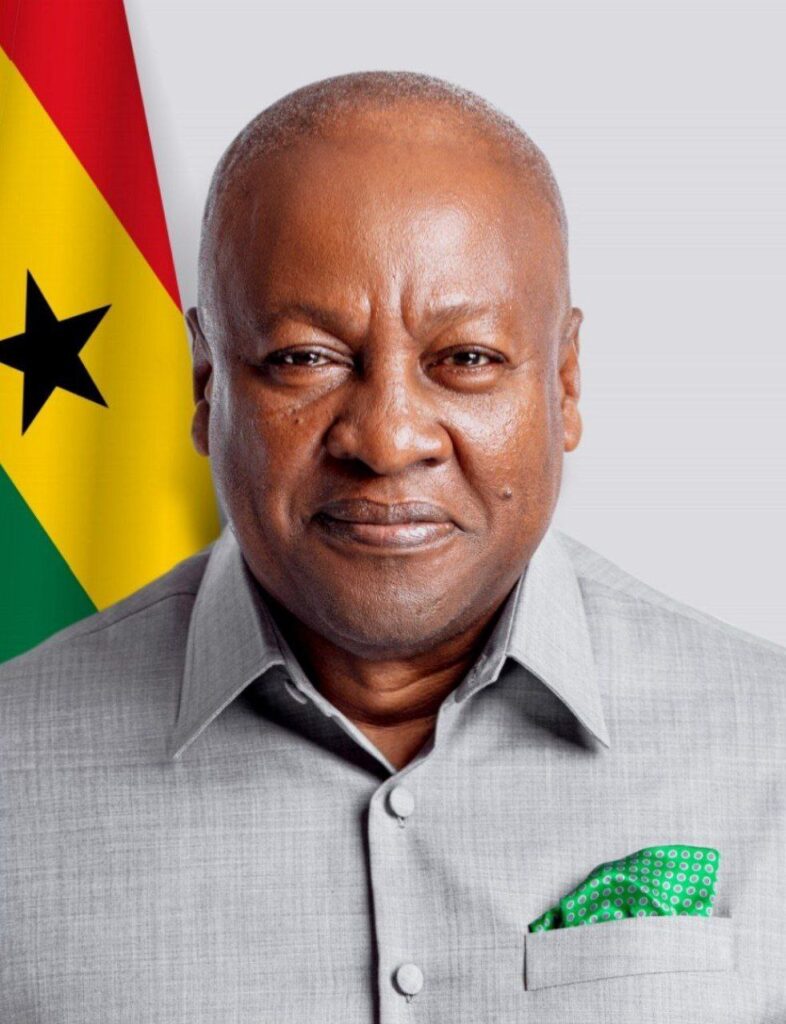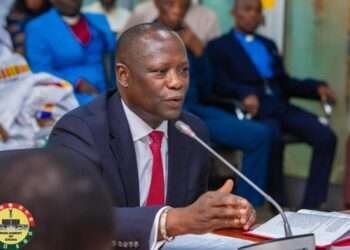Dr. Palgrave Boakye-Danquah, a former Government Spokesperson on Governance and Security, has commended President John Dramani Mahama for granting amnesty to 998 prisoners nationwide.
He has also urged the Ghana Tertiary Education Commission (GTEC) to direct its scrutiny toward unaccredited religious titles rather than targeting Deputy Health Minister Dr. Grace Ayensu-Danquah.
Speaking on the presidential amnesty, Dr. Boakye-Danquah praised the move as a humane and pragmatic intervention that demonstrates the government’s commitment to easing congestion in correctional facilities while offering deserving inmates a second chance at life.
“We have had some difficult challenges in the prisons, and we must commend the Ghana Prisons Service for the work they have done over the years. The government must turn particular attention to infrastructural works in the prisons. It is challenging and a bit of a concern”
Dr. Palgrave Boakye-Danquah, Former Government Spokesperson on Governance and Security
Dr. Boakye-Danquah argued that the broader conversation around Ghana’s correctional system needed to focus on reforms that balance public safety with rehabilitation. According to him, the primary purpose of imprisonment should not be to dehumanise but to provide opportunities for reformation.

“The goal of putting people in prison is to ensure that we have a safe society so that our society does not become too scared that it cannot live anymore. We need to expand our prison infrastructure. We need to look into our prison reforms”
Dr. Palgrave Boakye-Danquah, Former Government Spokesperson on Governance and Security
He further highlighted questionable practices within the system, including assigning inmates nearing the end of their sentences to perform weeding activities. He noted that some prisoners were compelled to beg for money while carrying out these tasks, which, in his view, undermines the ethics of correctional discipline.
President Mahama’s decision to grant clemency was made upon the recommendations of the Prisons Service Council, in consultation with the Council of State, in line with Article 72(1) of the 1992 Constitution.
Out of 1,014 inmates recommended for amnesty, 998 were approved under the presidential prerogative of mercy.
GTEC Controversy
In a separate matter, Dr. Boakye-Danquah criticised GTEC for what he described as misplaced focus on the credentials of Dr. Grace Ayensu-Danquah, the Deputy Health Minister and Member of Parliament (MP) for Essikadu-Ketan.

“GTEC should leave the Deputy Minister alone. I think that there are people who are using titles that they must pursue. From a religious background, I know that some people hold themselves with certain titles. GTEC is supposed to look at all institutions as they are”
Dr. Palgrave Boakye-Danquah, Former Government Spokesperson on Governance and Security
He argued that the prevalence of unaccredited theological institutions and unverified religious titles such as Reverend, Reverend Doctor, and other honorifics should be the target and priority of the Commission, “not sitting MPs and Deputy Ministers.”
“What about the apostles, reverends, and ‘professors’ from unaccredited seminaries?” He questioned, perplexed. He further explained that many of these institutions issue certificates and confer titles without proper accreditation, a practice that, in his view, continues to undermine standards in the country’s educational and professional systems.
“I think GTEC should turn their attention there – they will be able to sanitise the system that way,” he added.
The controversy over Dr. Ayensu-Danquah’s title arose after GTEC challenged her claim to the academic title of professor, cautioning her against publicly using it without proof of appointment. In a letter to the Chief of Staff at the Presidency, GTEC explained that it had given her until August 11, 2025, to submit documentation.

Her legal team insisted that she was appointed Assistant Professor of Surgery at the University of Utah in the United States, and further argued that GTEC had no jurisdiction to demand evidence of a foreign appointment.
The lawyers criticised GTEC’s actions, warning that if the Commission did not retract its correspondence within 14 days, they would pursue legal remedies to defend her reputation.
For Dr. Boakye-Danquah, the matter underscores the need for Ghana’s educational regulators to enforce standards fairly across all sectors rather than fixating on one public official.
READ ALSO: Illegal Diversion of Birim River Prompts Calls for Prosecution




















